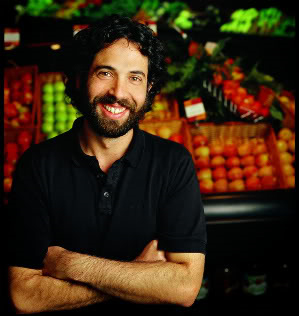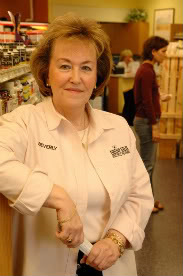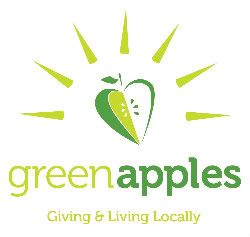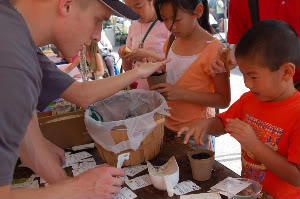
Standing outside of the 4,000 ft2 Jacksonville, FL Native Sun Natural Foods Market on opening day in February of 1997 may have been inspiring for some, but it wouldn't have had business owners taking notes on how to succeed in a competitive market. In fact, most people thought that 21-year-old Aaron Gottlieb and his fiancee Erica were in over their heads. Considering that their first and only employee quit by lunchtime opening day, the odds weren't in their favor. Eleven years, two locations totaling 28,500 ft2, a hotbar, deli, organic smoothie bar and 140+ employees later, those skeptics are realizing how wrong they were.
WholeFoods is not the first to notice the phenomena that is Native Sun. The company received Folio Weekly's "Best of Jacksonville" award from 2003 to 2007, it made the Health Food Business list of "Top 100 Health Food Stores," as well as other local honors, and continues to be a leader in our industry. Considering this, naming the store 2008 WholeFoods Retailer of the Year wasn't a hard decision. Grappling how they have achieved this much success in such a short period of time, however, may be a little more difficult.
You'd be wrong to assume the young couple was trained in business or had guidance from industry specialists. Gottlieb's father, who was in the medical billing industry, did become a partner in the company to guide his son with some generic business advice because, "He thought we didn't know what we were doing. . .and he was probably right," admits Gottlieb. The couple learned quickly, however, and bought out their father's share within two years.
Now, with the natural products industry hitting an all-time high in sales and media attention, competition and barriers pressuring independent natural stores are increasing. Native Sun, however, keeps expanding its business, and in 2006, opened an 18,500-ft2 second location. How have they managed to pull this off in such a short period of time? "Human nature," Gottlieb answers, "is to find your groove and stick with it. Business is an ever-changing world and there are eyes on you at all times. I find that what has let Native Sun grow is that every time there has been a shift in the food industry, whether I wanted to or not," he says, "I observed it and made the necessary changes in our company to make the consumers understand and appreciate what we were doing." He believes that this "adaptability" has been the key, as well as setting standards and sticking to them.
Coming of Age
Natural health wasn't always an essential part of Gottlieb's life though. "I was overweight and so was my family at the time," he says. "We were the typical Americans and fast food was a normal part of our diet." It wasn't until he went away to school at Emory University that he was introduced by friends to vegetarianism and healthy living.
As anyone who has gone to college knows, however, eating healthy with little money and unlimited access to cafeteria food can be difficult. He admits that while he lost 80 pounds on his new diet plan, he was still ignorant to the ways of health. "The irony is that I was still going to the same fast food restaurants, but I would order a whopper with lettuce, tomato, onion and mayonnaise with no meat," he laughs. "And I thought I was doing good for myself."
It wasn't until the summer of 1994 when he got a job at a vegetarian restaurant in Atlanta that Aaron's future plans took shape. Taking up a vegan diet and eating mostly raw and organic foods, Gottlieb explains that he looked a little emaciated at times, but "very happy that I wasn't overweight for the first time in my life," he says.
| Promotion Tips From the Sun |
|
One criticism Aaron Gottlieb of Native Sun has of the natural products industry is that they don't know how to deal with holidays. He was perplexed that during the two heaviest shopping months of the year, November and December, his sales took a plunge. Now, he says, it's all about discounting those hot holiday items and creating promotions that will get people in your store. His most successful program to date is the annual turkey card, where people who shop during October and November offset the cost of their Thanksgiving turkeys by up to $40. He admits that most people participating end up getting free turkeys or paying a miniscule amount for them, but it gets people in the store to buy organic vegetables, broth, stuffing, etc. Before the program started, the company was selling 20 to 30 turkeys a season and it quickly jumped from 200 to 500 to 1,000 to 1,400 this past year. He also offers vegetarian Tofurkeys or gift certificates because, he says, "you have to make sure the program applies to all." The company also hosts a fall open house on the store's floor that most recently fed 1,300 people. Topping this event, it hosted an all-day outdoor Earth Day event that featured live music, local companies making eco-friendly products and a free outdoor barbecue catering to all diets. The event brought 2,300 people to the store and shut down roads a quarter mile around the store. Offering neighboring stores sponsorship for use of their parking lots made this possible. Gottlieb says, "Store sales are reduced 70% on the day of the events, but this type of community outreach increases the longevity of the store." He then compares the price of two ads in a local newspaper costing $3,000 with having 2,000 people sample your products. "If 10% become customers, it's a way better return than any ad." |
He then left the restaurant looking for work at a natural food store, a position that, he says, was highly sought after in Atlanta at the time. Alan Purcell, who still works in the industry, finally gave Gottlieb a job facing shelves at his store Return to Eden. Gottlieb said that he would have taken any job to get his foot in the door, but as it turns out, facing shelves gave him exactly what he needed.
"I started reading every label and memorizing every product in the store," he says. When not concentrating on his overloaded college semesters, he would surf the Internet looking up what differentiated ingredients in similar products. Purcell then let him work in different departments and Gottlieb quickly learned the ins and outs of the natural food store. He soon found out, however, that he had a different opinion than most natural food stores as to what health really was.
Radical Thinking
After Erica and Aaron graduated, they moved down to Jacksonville. Aaron searched fruitlessly for a distributor job in the industry, but, he says, "No one would hire me because I had all these ideas about what I wanted to do with their company." Refusing to take advice from "some kid out of college," as they called him, may have been their worse decision and Gottlieb's greatest blessing.
"If no one would listen, I figured I might as well take the risk earlier than expected," said Gottlieb. The risk being a small shop called Native Sun. "We weren't shooting for a company with more than five employees," said Gottlieb. "My goal was to buy organic food and trust where I was buying it from. I was a little narrow minded at the thought of financial growth and what that meant," he says. Rather, comments Gottlieb, he was guided by "The hippie ideals of 'I got everything covered.'"
To exemplify his naivete to business, he reflects on his first vitamin show where he heard about a small vitamin shop hitting a million in sales. "If only I could do a million dollars in sales," he hoped. After cracking the million-dollar mark in his first year, he realized that a million was not a lot of money for a grocery store. "I think we brought home $20,000 the first year, and that was between the two of us," he says. Gottlieb now jokes that he is no longer shooting for a million.
While financial security is always tied to business, Gottlieb has never put it before his customers or his standards. "It's not about what I take home as much as it is about how the company is doing," he explains. Native Sun's success has brought wealth to Gottlieb's family of four, and they have certainly upgraded their lives in comparison to that first year in business, but "we haven't changed our belief system," he says. His house is not filled with a bunch of material possessions, he explains, and they try to minimize their impact by any means. "We try to enjoy life for what it is," he says.
This type of minimalist thinking strikes the very core of the natural products world, but when it comes to business, this strategy is somewhat radical. For instance, when Native Sun brought organic milk to Jacksonville, it barely had any competition. Instead of increasing the mark up, however, Gottlieb decided to sell the milk at cost. Jacksonville was not a very health-centered town and organics were a new thing. "The only way to convince people to change [to organic]," he says, "was to have the freshest milk possible at the lowest price possible."
In this situation in particular, his producer, Organic Valley, actually called saying that other chain stores were complaining about his prices."I told them to mind their own business," says Gottlieb. "hey wouldn't have done anything if it was me complaining about mass market prices." Since then, Organic Valley has become one of the store's greatest partners, and the store now receives weekly deliveries due to its large sales volume.
 Making the Standard
Making the Standard
If decreasing profits on popular items solely to make them more affordable to your customers seems odd, creating a standard that's nearly impossible to uphold is borderline insane. Gottlieb had a vision when getting into this industry, and however unrealistic many thought it was, he has managed to pull it off. Early on, his high standards led to high turnover because his employees thought Gottlieb's age and childish passions were misguided. "They didn't realize that my age didn't make me weak," he says. "I would say what I was thinking and wouldn't put up with something that went against my standard."
As the store has grown, upholding this standard has become much more difficult. Gottlieb attributes much of the success of the program to, whom he calls, his best hire. Beverly Velasquez (pictured to the right), the company's director of nutrition and education, was a broker in the industry for years and had a lot of experience with both supplement and health and beauty manufacturers. With her help, says Gottlieb, "[We] really created something different in the industry."
Supplements. For one, Velasquez and Gottlieb do not trust manufacturers just because they claim to be great. "We have been to over 90% of our nutrition facilities and demand review of raw material lists," notes Gottlieb. "Our approach is get us in there and let us check it out." They also review what equipment is being used and ask how the company is weeding out ornamental herbs that have no nutritional benefit or purpose in a product. Most importantly, if they don't understand something, they demand explanation.
These tactics have already led the store to drop two major lines. They have also given the store a reputation throughout the industry and now some manufacturers actually use Native Sun's approval as a marketing tool. Loyalty to Native Sun has also been enhanced, says Gottlieb, as "customers watched us pull stuff that made us money."
GMOs. In regard to food, genetically modified organisms (GMOs) were banned nine years ago. "Our customers believe food was grown from a normal seed out of the ground and made into a product in a natural products food store. Therefore, you don't put GMOs in them. It's misleading," he says.
| Native Sun Solutes the Environment |
|

Native Sun's commitment to the environment is one of the many reasons it has received the Retailer of the Year award. For one, the staff-run Green Apples Program was created to support different community-based charities and groups focused on environmental issues. Its first initiative is the highly successful Treecycle Program, which donates five cents of every $1 reusable bag sold to replanting trees in the community. Every time these bags are used in the store thereafter, an additional five cents gets added to the donation. In its first month, 6,000 bags were sold and about 40% of the store's clientele reuse the bags. The company's overall carbon footprint has also been reduced greatly by the use of biodegradable plastic grocery bags, produce bags, juice bar cups, containers and bulk bags. Of note, Native Sun's new location that opened in 2006 was constructed with Styrofoam and steel, essentially making the 18,500-ft2 grocery store into a large walk-in cooler. Despite being located in sunny Florida, the building manages to stay at a 70-degree temperature without the use of air conditioning. The company also uses only small amounts of refrigerant, which are said to harm the ozone. The refrigerant used cools an alcohol- and water-based glycol that gets the job done just as well. This state-of-the-art refrigeration system is now being used in some mass market stores, but Native Sun was the first to implement it in the United States, according to the store. |
To ensure this policy, the store reviews everything down to inert ingredients. However, Gottlieb realizes that his store is probably not 100% GMO free, but it gets food allergen and GMO reports from all of its manufacturers every six months. The store also has a research staff that deals exclusively with investigating companies and products to ensure safety and quality.
Food Sensitivities. If that weren't enough, the company has created a color coded label system that teaches customers with sensitive diets how to shop at the store. Different colors verify whether the product is low sodium (under 100 mg), casein free, gluten free (under 20 parts per million) or manufactured in a peanut-free facility.
Gottlieb, taking a risk once again, put money into a labeling project that had no immediate return. However, he says, "Over the past eight years, we have developed 40% of our business with food allergen or food sensitive customers." He explains that many doctors will tell patients what not to eat, but fail to tell them what they can eat. To further assist customers, the store posts label guides throughout the store and produces newsletters with sensitive diet information. The company's upcoming Web site will also be geared toward finding out what type of customer you are.
Organics. The store is also certified organic by the U.S. Department of Agriculture (USDA). In short, certification guarantees that the store knows how to handle all packaged organic products and is aware of cleaners and other chemical products used in the store that may harm organic integrity. This certification does not cross over to other sections of the store, but Native Sun has separate organic certifications for its produce and bulk sections.
Gottlieb says he got USDA's signature to differentiate Native Sun from other stores, but admits the process is timely, costly and tough to maintain. Ironically, he jokes, "I was more organic than the USDA before I paid them." Nevertheless, he believes the certification was well worth it and it gives customers one more reason to choose the store.
The Pendulum Swings
The industry has changed very rapidly since Native Sun opened its doors, and Gottlieb says that if he didn't get in it when he did, things may have been different. He believes that independent stores will get thinner in the next couple of years because the lack of good information in the food industry has created consumer confusion. "This," he says, "makes it difficult for the independent to stand apart from mass market vendors." However, a void is being created by this consolidation, and in the next five to 10 years, Gottlieb predicts, new independents with new ideas will fill that void.
As for the future of Native Sun, says Gottlieb, "I have a lot of plans, but which ones I'm activating is really going to play out between the next election, the stock market, food prices and how grocery stores keep changing. "Gottlieb assures that no matter what happens, "I'll align myself correctly without losing who I am."
As for the industry as a whole, he says, "Independents that are here need to sit tight and be creative and those that aren't should wait a bit. One thing is certain, he says, "Innovation is going to be what brings the independent back." WF










